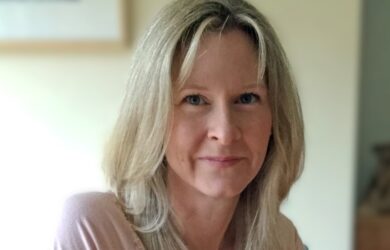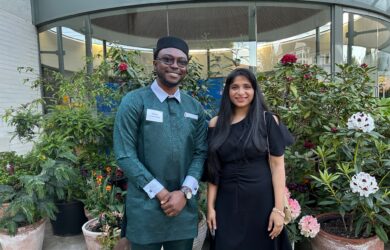New study suggests intelligent management of oil palm lifecycle can maintain frog diversity during replanting.
Every little step we can take to keep agricultural areas as full of biodiversity as possible is a win, particularly given that we can often support wildlife in inexpensive ways. Wildlife are inherently valuable, plus they often have positive impacts on the overall ecological function of the landscape.
Dave Kurz
The traditional replanting process associated with oil palm industry has a clear negative impact on frog diversity and should be more effectively managed, according to a new study led by a Gates Cambridge Scholar.
One of the key characteristics of oil palm and other plantation crops is that they undergo a lifecycle in which the trees mature for a number of years before being periodically cut and replanted with young trees. This cycle leads to dramatic changes in the vegetative structure, temperature, humidity and canopy cover of plantations. Until now no studies had quantified the degree to which the abrupt turnover in this life cycle influences flora and fauna and how the process of replanting can be improved for conservation purposes in plantation crops.
The new study just published in the July issue of the journal Biotropica provides the first insights into ways that intelligent management of the oil palm lifecycle can benefit frogs. The study, published by researchers at the University of Cambridge, MIT-Woods Hole, the University of Würzburg and the Indonesia-based SMART Research Institute, found a loss in both number of frog species (31% lower) and number of total frogs (47% lower) in young oil palm plantations as compared to older ones. In addition, the types of frogs found in the two types of oil palm changed, with young, recently re-planted oil palm containing fewer native and forest-associated frog species.
By tweaking the way in which oil palm re-planting is managed, the researchers conclude that frogs and potentially other types of wildlife could do much better in these agricultural landscapes. Instead of replanting huge areas of oil palm all at once, the new research suggests that estate managers could re-plant in a staggered way that ensures older oil palm patches stay connected. In this way, frogs could move between the connected older oil palm areas, allowing a more diverse collection of frogs to persist in the landscape, even during the replanting process.
These findings are encouraging, says lead author David Kurz [2013], who carried out the research as a Gates Cambridge Scholar at the University of Cambridge and is now a PhD student at the University of California, Berkeley. “We’ve known for a long time that we need to protect large areas of forest, but our study provides hope that important conservation efforts can also take place in ordinary working landscapes like oil palm,” he says.
The study is part of a long-term project – the Biodiversity and Ecosystem Function in Tropical Agriculture project [BEFTA] a collaboration between University of Cambridge researchers and the Sinar Mas Agro Resources and Technology Research Institute – that seeks to improve the long-term sustainability of tropical landscapes through creative management efforts that support both economically and environmentally beneficial processes. Dr William Foster, Curator of Insects in the University Museum of Zoology, Cambridge, leader of the BEFTA project, and supervisor of the study, notes: “This study indicates how large-scale experiments can provide evidence for ways of conserving biodiversity, whilst maintaining yield, in tropical agricultural landscapes like oil palm.”
As oil palm continues to expand in Southeast Asia, more studies like this one will need to be carried out for the many different types of wildlife that live in oil palm – such as beetles, ants, dragonflies, small mammals, bees, bats, snakes and birds. As Dr Ed Turner, Affiliated Researcher in the Department of Zoology, Cambridge, points out: “The biodiversity found in tropical agricultural systems is still little studied, although this can be extremely important for maintaining vital ecosystem functions. Our study shows how management practices can affect this diversity, with implications for the long-term management of tropical landscapes.”
Kurz and his co-authors are confident that novel management efforts, from improved replanting approaches to maintenance of understory structure in oil palm, can help sustain biodiversity and natural processes in the long-term. He says: “Every little step we can take to keep agricultural areas as full of biodiversity as possible is a win, particularly given that we can often support wildlife in inexpensive ways. Wildlife are inherently valuable, plus they often have positive impacts on the overall ecological function of the landscape.”












